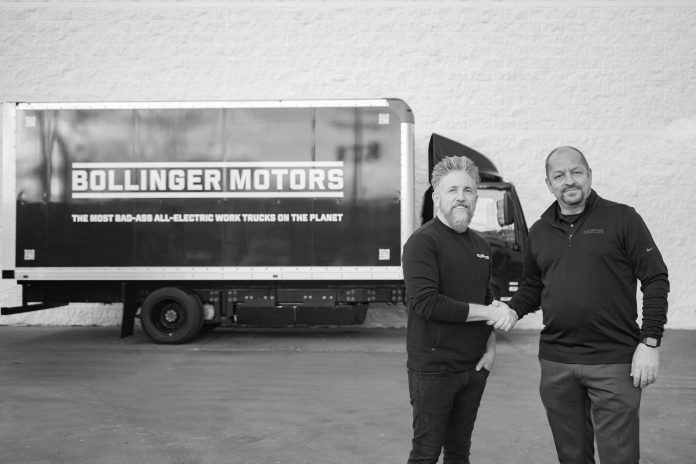Electric vehicle startup Bollinger Motors has formally announced its first-ever retail partnership with LaFontaine Automotive Group, a dealership with multiple locations in Michigan.
The new trade deal will supply LaFontaine storefronts with Bollinger Motor’s upcoming class 4 commercial truck and B4 Chassis Cab, the latter of which is slated to arrive later this year. The fledgling automaker, founded in 2015, plans to produce its vehicles in its home state of Michigan. “We are thrilled to work with LaFontaine right here in Michigan where we designed, and will build, the B4,” stated founder and CEO of Bollinger Motors Robert Bollinger, adding, “LaFontaine shares our commitment to quality and customer service.”
With the addition of Bollinger Motor to its catalog of offerings, the LaFontaine Automotive Group now represents 54 auto brands across 39 storefronts. However, only two locations will carry the new electric vehicles when they arrive: LaFontaine Bollinger Farmington Hills and LaFontaine Bollinger Lansing.
“Our partnership with Bollinger Motors is a true testament to the dedicated team we have and our commitment to providing our commercial customers a personalized experience that extends far past the sale of the vehicle,” commented Ryan LaFontaine, CEO of the dealership group. “As we expand our commercial vehicle offering, this partnership aligns with our long-term vision of growth and expansion, allowing us to serve a broader customer base and strengthen our strategically located presence across Michigan.”
LaFontaine Automotive Group’s collaboration with Bollinger Motors echoes the decision of at least one other up-and-coming car manufacturer, VinFast. While other electric vehicle brands such as Rivian and Polestar have sought to mimic the Tesla model of direct-to-consumer sales, the Vietnamese-based company announced at the start of the year it had signed deals with multiple third-party franchises in the U.S. to sell its current and future models. Although proponents of the direct-sales system argue that it lowers costs for consumers by cutting out the middleman, supporters of the franchise model claim that it can reduce transparency and remove the incentives to deliver good customer service.



